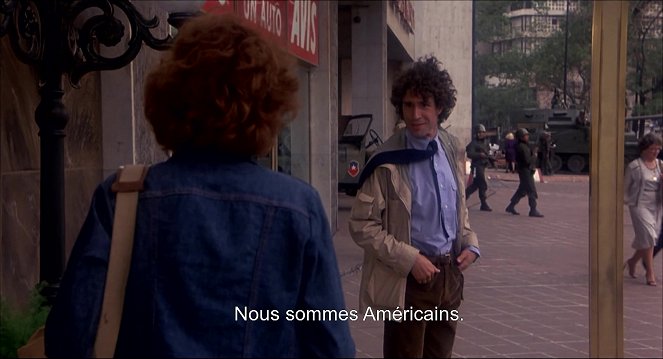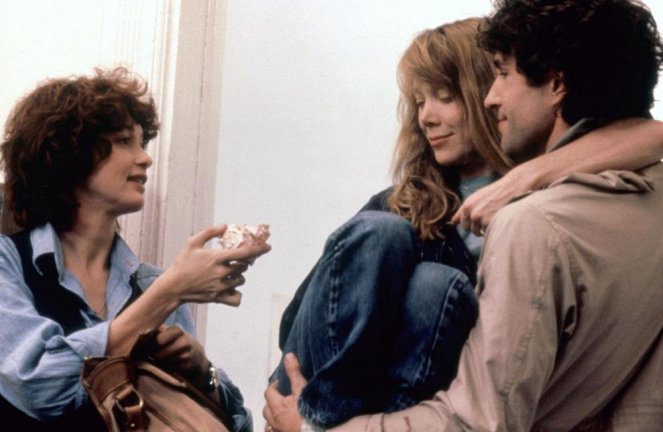Director:
Costa-GavrasCámara:
Ricardo AronovichMúsica:
VangelisReparto:
Jack Lemmon, Sissy Spacek, Melanie Mayron, John Shea, Charles Cioffi, David Clennon, Jerry Hardin, Richard Bradford, Joe Regalbuto, Keith Szarabajka (más)Sinopsis(1)
Charles Horman, un joven periodista norteamericano idealista, desaparece de su domicilio en Chile durante el golpe de Estado del general Augusto Pinochet. Ed Horman, su padre, se traslada allí para emprender su búsqueda en compañía de su nuera. Juntos recorrerán las instituciones diplomáticas norteamericanas intentando averiguar su paradero, aunque para ello deberán salvar todas las trabas burocráticas que encontrarán a su paso. (Cinema International Corporation)
(más)Videos (1)
Reseñas (1)
Costa-Gavras is a prominent representative of political drama, and he applied this characteristic in Missing. I have no reason to criticize the form he used; the film is precisely cast, with Jack Lemmon confirming his role as a movie star who knows how to carry an entire film. Sissy Spacek is pleasantly civilian, and the other actors do not embarrass themselves either. In the first half, the film manages to sell the increasing paranoia and uncertainty of people who find themselves in the midst of a situation where the old laws no longer apply and the game of life begins. What I have reservations about is the content. As a left-wing intellectual, Costa-Gavras is clear about what happened in Chile in 1973. His sympathies are clearly on the side of the overthrown government and its supporters. The coup in Chile was one of those pivotal events where the political attitudes of the public were clearly broken, and identities were defined. Today, we know what the fate of a country where the coup failed and the leftist government implemented its consequences looked like. Venezuela went from being a rich, oil-drenched country to a state with a collapsed economy, insane inflation, and an impoverished middle class that is fleeing the country en masse, making it very difficult to even find basic food. Chile experienced a similar atmosphere in the early 70s when the political center was collapsing rapidly and political positions were polarizing. Nevertheless, when you see your provisions in the pantry dwindling and inflation quickly consuming your savings, you have a reason to be bitter and angry. Pinochet's coup had the support of a significant portion of the public, and to this day, it is true that the coup divides perceptions of history and splits political preferences. By the way, it wasn't as bloody as it is rumored. The total time of General Pinochet's rule claimed just over 1300 deaths. Compare that to the number of persecuted and murdered in Venezuela, and you will find that the supporters of the coup have a claim to their share of the truth. What also bothers me is the American narcissism, which is understandable on one hand, because Gavras was making the film for the American market and American audience, but the films that perceive the coup from the Chilean perspective are much more interesting. Their sad heroes could not count on the exclusive position of being holders of a passport from the world's superpower. Overall impression: 75%.
()


